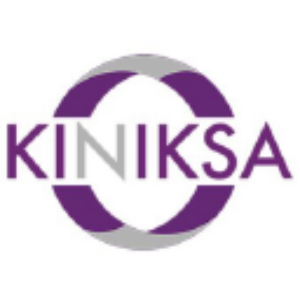Kiniksa Pharmaceuticals Announces Trial Design of Planned Phase 2/3 Clinical Trial of KPL-387 in Recurrent Pericarditis
Rhea-AI Summary
Positive
- Phase 1 single ascending dose data supports monthly dosing profile
- Trial design leverages company's previous experience with RHAPSODY study
- KPL-387 offers potential for convenient monthly dosing via single subcutaneous injection
- Clear development timeline with Phase 2 data expected in 2H 2026
Negative
- None.
News Market Reaction
On the day this news was published, KNSA gained 2.22%, reflecting a moderate positive market reaction.
Data tracked by StockTitan Argus on the day of publication.
– KPL-387 Phase 2/3 trial on track to initiate in mid-2025; Phase 2 data expected in 2H 2026 –
– KPL-387 Phase 1 single ascending dose data support profile for monthly dosing –
– Presentation and webcast at Jefferies 2025 Global Healthcare Conference scheduled for 12:50 pm ET today–
LONDON, June 05, 2025 (GLOBE NEWSWIRE) -- Kiniksa Pharmaceuticals International, plc (Nasdaq: KNSA) (Kiniksa), a biopharmaceutical company developing and commercializing novel therapies for diseases with unmet need, with a focus on cardiovascular indications, today announced details for its planned Phase 2/3 clinical trial of KPL-387 in recurrent pericarditis, expected to initiate in the middle of 2025. KPL-387 is an independently developed monoclonal antibody that binds human interleukin-1 receptor 1 (IL-1R1), inhibiting the signaling activity of the cytokines interleukin-1α (IL-1α) and interleukin-1β (IL-1β).
“We leveraged our expertise in this indication and experience with the RHAPSODY study design to plan this pivotal phase 2/3 study. We believe KPL-387 could provide a meaningful addition to the therapeutic options available to patients,” said John F. Paolini, M.D., Ph.D., FACC, Chief Medical Officer of Kiniksa. “We are eager to advance KPL-387, with its target profile of monthly dosing in a single subcutaneous injection in a liquid formulation, through this pivotal Phase 2/3 clinical trial and to patients in need. We expect to initiate the study in the middle of this year, with data from the dose-focusing portion expected in the second half of 2026.”
Phase 2/3 Clinical Trial of KPL-387 in Recurrent Pericarditis
Kiniksa is on track to initiate a Phase 2/3 clinical trial designed to evaluate the efficacy and safety of KPL-387 administered subcutaneously (SC) in patients with recurrent pericarditis. The trial will consist of three overlapping parts combined into a single protocol: a dose-focusing portion (Phase 2), a pivotal portion (Phase 3), and long-term extensions (LTE).
The dose-focusing portion of the trial will enroll up to approximately 80 participants with recurrent pericarditis randomized in a 1:1:1:1 ratio to receive KPL-387 300 mg SC biweekly, 300 mg SC monthly, 100 mg SC biweekly, and 100 mg SC monthly. The primary efficacy endpoint is time to treatment response at Week 24. Subsequently, active, enrolled participants may be eligible to enter an LTE.
Following the dose-focusing portion, enrollment of up to approximately 85 patients with recurrent pericarditis into the pivotal portion of the clinical trial will commence. In the first period, a single-blind run-in (RI), all participants will receive KPL-387 while conventional oral pericarditis medications are weaned and discontinued. Participants achieving Clinical Response in the RI period will then be randomized in a 1:1 ratio to receive either KPL-387 or placebo in an event-driven, double-blind, randomized withdrawal (RW) period. The primary efficacy endpoint is time to first-adjudicated pericarditis recurrence during the RW period. Participants in the RW period may be eligible to enter an LTE.
The Phase 2/3 clinical trial design is supported by data from the Phase 1 first-in-human single ascending dose study.
Presentation Information
- Ross Moat, Chief Commercial Officer, and Dr. John Paolini, Chief Medical Officer, will provide a corporate presentation at the Jefferies 2025 Global Healthcare Conference at 12:50 p.m. Eastern Time on Thursday, June 5, 2025.
- A live webcast of Kiniksa’s presentation will be accessible through the Investors & Media section of the company’s website at www.kiniksa.com. A replay of the event will also be available on Kiniksa’s website within approximately 48 hours after the event.
About Kiniksa
Kiniksa is a biopharmaceutical company dedicated to improving the lives of patients suffering from debilitating diseases by discovering, acquiring, developing, and commercializing novel therapies for diseases with unmet need, with a focus on cardiovascular indications. Kiniksa’s portfolio of assets is based on strong biologic rationale or validated mechanisms and offers the potential for differentiation. For more information, please visit www.kiniksa.com.
About KPL-387
KPL-387 is an independently developed, investigational, fully human immunoglobulin G2 (IgG2) monoclonal antibody that binds human interleukin-1 receptor 1 (IL-1R1), inhibiting the signaling of the cytokines IL-1α and IL-1β. Kiniksa believes KPL-387 could expand the treatment options for recurrent pericarditis patients by enabling dosing with a single monthly SC injection in a liquid formulation.
Forward-Looking Statements
This press release contains forward-looking statements. In some cases, you can identify forward looking statements by terms such as “may,” “will,” “should,” “expect,” “plan,” “anticipate,” “could,” “intend,” “target,” “project,” “contemplate,” “believe,” “estimate,” “predict,” “potential” or “continue” or the negative of these terms or other similar expressions, although not all forward-looking statements contain these identifying words. All statements contained in this press release that do not relate to matters of historical fact should be considered forward-looking statements, including without limitation, statements regarding: our plan to initiate a Phase 2/3 clinical trial of KPL-387 in recurrent pericarditis in mid-2025, with Phase 2 data expected in the second half of 2026, and that we remain on track to meeting such plan; our target profile of monthly dosing via a single subcutaneous injection in a liquid formulation for KPL-387; our belief that KPL-387 could provide a meaningful addition to therapeutic options available to patients; the design of our Phase 2/3 clinical trial of KPL-387, including the number of participants expected to enroll and our belief that the Phase 3 portion is pivotal; our beliefs about the mechanisms of our assets and potential impact of their approach; and our belief that our portfolio of assets offers the potential for differentiation.
These forward-looking statements are based on management’s current expectations. These statements are neither promises nor guarantees, but involve known and unknown risks, uncertainties and other important factors that may cause our actual results, performance or achievements to be materially different from any future results, performance or achievements expressed or implied by the forward-looking statements, including without limitation, the following: delays or difficulty in enrollment of patients in, and activation or continuation of sites for, our clinical trials; delays or difficulty in completing our clinical trials as originally designed; potential for changes between final data and any preliminary, interim, top-line or other data from clinical trials; our inability to replicate results from our earlier clinical trials or studies; impact of additional data from us or other companies, including the potential for our data to produce negative, inconclusive or commercially uncompetitive results; potential undesirable side effects caused by our products and product candidates; our inability to demonstrate safety and efficacy to the satisfaction of applicable regulatory authorities; potential for applicable regulatory authorities to not accept our filings, delay or deny approval of any of our product candidates or require additional data or trials to support approval; our reliance on third parties as the sole source of supply of the drug substance and drug product used in our products and product candidates; raw material, important ancillary product and drug substance and/or drug product shortages; our reliance on third parties to conduct research, clinical trials, and/or certain regulatory activities for our product candidates; complications in coordinating requirements, regulations and guidelines of regulatory authorities across jurisdictions for our clinical trials; business development activities and their impact on our financial performance and strategy; changes in our operating plan, business development strategy or funding requirements; existing or new competition; and the impact of global economic policy, including any uncertainty in national and international markets.
These and other important factors discussed in our filings with the U.S. Securities and Exchange Commission, including under the caption “Risk Factors” contained therein, could cause actual results to differ materially from those indicated by the forward-looking statements made in this press release. Any such forward-looking statements represent management’s estimates as of the date of this press release. Except as required by law, we disclaim any intention or obligation to update or revise any forward-looking statements. These forward-looking statements should not be relied upon as representing our views as of any date subsequent to the date of this press release.
Every Second Counts! ®
Kiniksa Investor & Media Contact
Jonathan Kirshenbaum
(781) 829-3949
jkirshenbaum@kiniksa.com








